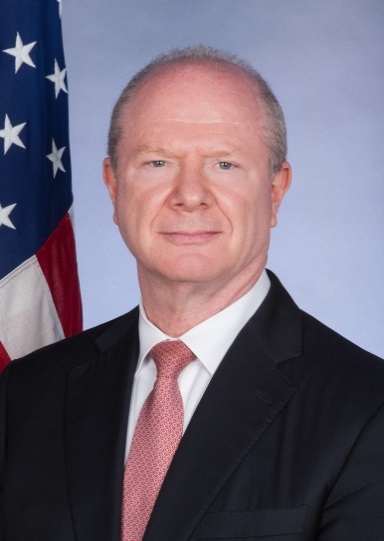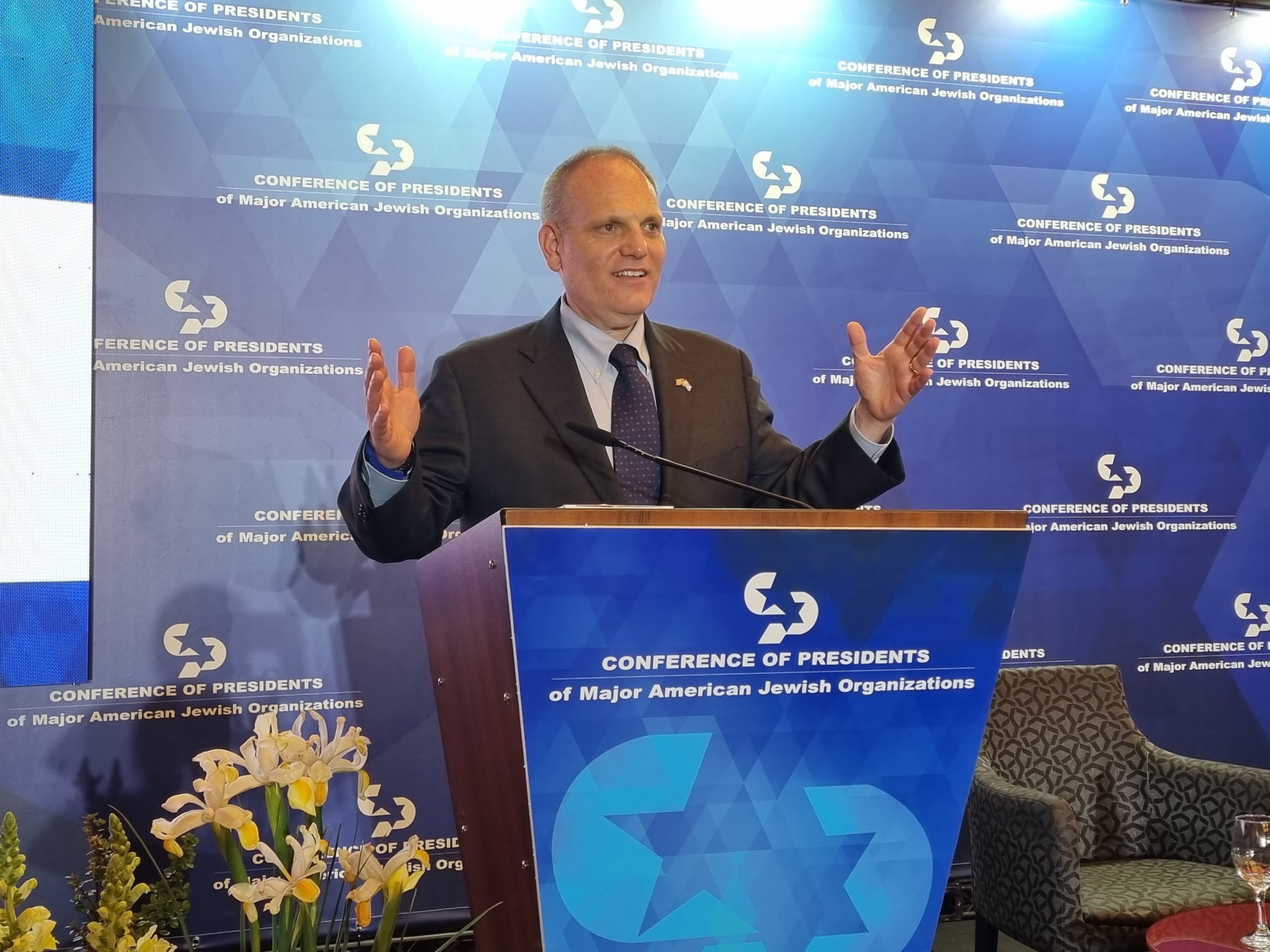The American Jewish Committee (AJC) is looking to help expand the Abraham Accords and potentially facilitate additional normalization agreements soon.
The advocacy group is slated to formally open its new office at a ribbon-cutting ceremony in Abu Dhabi next week, which will act as its headquarters for outreach efforts to the Gulf and the region.
The office builds on 25 years of AJC engagement with the governments and leadership in the Gulf and particularly the UAE
“The office builds on 25 years of AJC engagement with the governments and leadership in the Gulf and particularly the UAE,” Marc Sievers, director of the new Abu Dhabi office, told The Media Line.
Sievers, a former US ambassador to Oman, said that the Emiratis indicated that they were amenable to the opening of the office sometime in 2020. The US-brokered Abraham Accords were signed by Israel, the United Arab Emirates, and Bahrain at the White House on Sept. 15, 2020. Morocco later joined the agreement as well as Sudan.

Former US Ambassador to Oman Marc Sievers. (US State Department)
The normalization pacts were initially advanced by the Trump Administration and have been more recently embraced by the Biden Administration which, Sievers stressed, indicates a rare show of bipartisan support.
The idea behind opening an AJC office in Abu Dhabi was partly to support the Abraham Accords, partly to have a presence on the ground, and partly to act as a regional base, he added.
“From here I hope to reach out more broadly in the Gulf,” he said. “The AJC has offices in 13 countries around the world, but this is the first one in an Arab and Muslim country so that’s really exciting for us too.”
The accords have also led to another significant development in the UAE: a thriving Jewish community that is estimated to number in the thousands.
This holiday season, give to:
Truth and understanding
The Media Line's intrepid correspondents are in Israel, Gaza, Lebanon, Syria and Pakistan providing first-person reporting.
They all said they cover it.
We see it.
We report with just one agenda: the truth.


“There’s a new atmosphere here; I think we’re part of that although I think we’re involved in a number of different aspects of this, not strictly a religious one,” Sievers affirmed.
The AJC’s outreach is not limited to the UAE, but also includes Bahrain, Oman, and other regional partners.
“We look forward to developing ties elsewhere; certainly Saudi Arabia would be something that I’d very much like to explore further,” Sievers said.
Sievers spoke to The Media Line on the sidelines of the Conference of Presidents of Major American Jewish Organizations, which is taking place in Jerusalem this week.
Envoys from Morocco and Bahrain called for strengthening diplomatic and trade relations with Israel during a special panel dedicated to the Abraham Accords late Monday.
We’ve taken brave and historic steps to strengthen this new relationship but we’re only really very early on
Bahrain’s first ambassador to Israel, Khaled Yousif al-Jalahma, told attendees that the kingdom is looking for new ways to cooperate and fortify ties.

Bahraini Ambassador to Israel Khaled Yousif al-Jalahma, at a meeting of the Conference of Presidents of Major American Jewish Organizations, Feb. 21, 2022, in Jerusalem. (Maya Margit/The Media Line)
“We’ve taken brave and historic steps to strengthen this new relationship but we’re only really very early on,” he said.
We’ve been cooperating in all fields. We’re not going to stop there; we’re going to continue to strengthen our relations. We have a promising future.
Abderrahim Beyyoudh, Morocco’s ambassador to Israel, echoed those statements.
“We’ve been cooperating in all fields,” Beyyoudh said. “We’re not going to stop there; we’re going to continue to strengthen our relations. We have a promising future.”
In attendance at the Jerusalem event were a host of Jewish American leaders, as well as US Ambassador to Israel Thomas Nides and Ines Demiri, chargé d’affaires at the Kosovo Embassy in Jerusalem.
I think there’s a great understanding by [Israeli Prime Minister Naftali] Bennett, by [Foreign Minister Yair] Lapid and by the government in general that they don’t want to repeat the experience that occurred between the last Democratic president and the previous Israeli government
William Daroff, CEO of the Conference of Presidents, told The Media Line that the umbrella group is in the process of rebuilding and rejuvenating ties between American Jewry and Israel following a years-long hiatus brought about by the COVID-19 pandemic.

William Daroff, CEO of the Conference of Presidents, Feb. 21, 2022. (Maya Margit/The Media Line)
“I think there’s a great understanding by [Israeli Prime Minister Naftali] Bennett, by [Foreign Minister Yair] Lapid and by the government in general that they don’t want to repeat the experience that occurred between the last Democratic president and the previous Israeli government,” Daroff said.
Daroff added that the Conference of Presidents was “very excited” by the Abraham Accords and the potential for additional partnerships with other Arab and Muslim states in the near future.
Bilateral trade between the UAE and Israel is expected to reach some $2 billion over 2022 and the Emirati government said last fall that it hopes that economic activity with Israel will reach a whopping $1 trillion within the coming decade.
“I’m hopeful that there will be more countries that will sign on,” Daroff related. “It’s clear that the road to peace does not absolutely positively need to go through Ramallah. This outside-in approach of engaging with the Arab world, of engaging with hundreds of millions of Arabs and Muslims who are outside of the Palestinian Authority and the West Bank is just an amazing opportunity.”